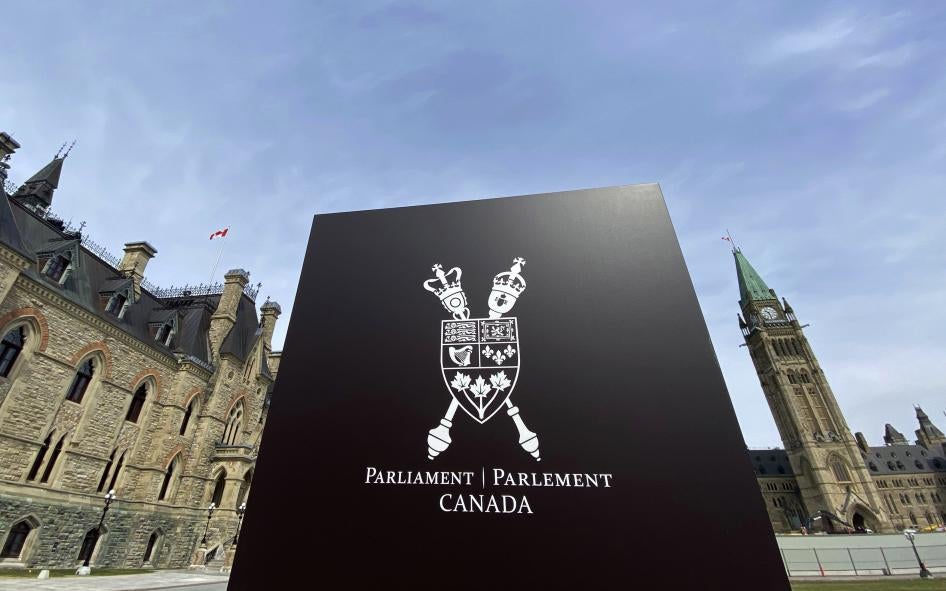(Ottawa) – New climate legislation adopted by the Canadian parliament on June 29, 2021 will increase transparency and accountability for the Canadian government’s efforts to meet its climate change commitments, Human Rights Watch said today.
Parliament passed Bill C-12, which requires the government to set reduction targets for greenhouse gas emissions, in the final days before parliament breaks for the summer, after months of negotiations and delay. The bill is expected to receive royal assent soon and become law.
“Canada has missed every past emissions target it has set and remains the only G7 country whose emissions have risen since it signed the Paris Agreement,” said Rachel LaFortune, environment researcher at Human Rights Watch. “Bill C-12 could be key to breaking this abysmal track record and ensuring that Canada meets its human rights obligations to reduce emissions and protect against serious harms from climate change.”
Bill C-12, while imperfect, will require the Canadian government to set and regularly report on progress meeting national targets for reducing greenhouse gas emissions. In setting targets, the government must take into account the best available science and Indigenous knowledge, as well as input from an already established independent expert advisory body. The bill also requires the federal environment commissioner to report on the government’s progress at least once every five years.
Non-governmental organizations, including Human Rights Watch, criticized an earlier draft of the bill because it lacked means to ensure emissions reductions over the near term and provided little detail on how the federal government would be required to plan for or report on emissions reduction efforts, among other accountability gaps.
The legislation also faced significant opposition from Conservative party members, who cited lack of oil and gas sector representation on the new independent advisory body as a concern, although a number of advisory board members have industry experience.
Amendments put forward by New Democratic Party and Bloc Québécois members of parliament helped improve the legislation from its first draft, increasing the requirements for short-term accountability and transparency. Initially, the bill only required the federal government to set five year targets starting in 2030, effectively exempting Prime Minister Justin Trudeau’s government from being held to account for its current performance. The bill now requires an interim target in 2026, along with progress reports in 2023, 2025, and 2027.
The bill also now requires more detail from the federal government on how targets will be met. In addition to reporting on federal measures to reduce emissions, and sector-specific emissions reductions, the bill now requires the federal government to report on cooperative measures and agreements with provinces and other sub-national governments. There remains a gap, however, in accounting for how provincial and territorial measures will contribute to needed emissions reductions.
Under international human rights law, all governments have an obligation to protect people from foreseeable harms resulting from climate change, including by reducing emissions. Canada – currently set to reduce emissions by 36 percent by 2030 – has pledged to reach a 40-45 percent reduction by 2030 compared with 2005 levels, a far cry from the 60 percent reduction needed for Canada to contribute its fair share to global emissions reduction efforts, according to environmental groups.
The Canadian government should set a more ambitious 2030 target in the upcoming update to its Paris Agreement pledge, Human Rights Watch said. In addition, the federal government should work with provincial, territorial, and Indigenous governments to deliver on the promise of Bill C-12 by coordinating substantial emissions reductions.
“The new Canadian legislation is a significant step in the right direction, but much more is needed to ensure that Canada contributes its fair share to global efforts to prevent the worst human rights consequences of climate change,” LaFortune said. “With Canada warming at up to three times the global rate, it shouldn’t need any prompting.”








